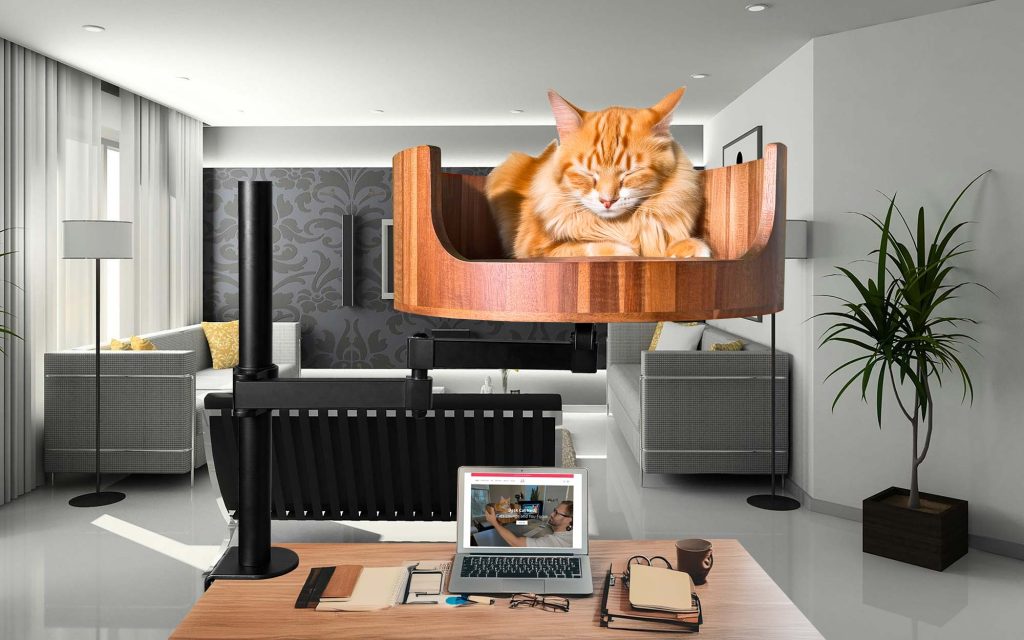If you have noticed that your cat’s eye is squinting, it is important to investigate the possible causes and find solutions to alleviate any discomfort they may be experiencing. There are a variety of reasons why a cat’s eye may be squinting, ranging from minor irritation to more serious underlying issues. Understanding the potential causes and taking appropriate action is essential for maintaining your feline friend’s eye health.
In this article, we will explore the common reasons why a cat’s eye may be squinting, including conjunctivitis, corneal ulcers, foreign objects in the eye, and eye infections. We will also discuss some practical solutions for addressing these issues, such as gently cleaning the affected eye, using over-the-counter eye drops, or seeking veterinary care if necessary. By being proactive and attentive to your cat’s eye health, you can ensure that they are comfortable and happy.
1. Squinting in one eye could indicate a variety of underlying issues, including infections, injuries, or allergies.
2. If your cat’s eye is squinting, it is crucial to consult a veterinarian for a proper diagnosis and treatment plan.
3. Common causes of squinting in cats include conjunctivitis, corneal ulcers, and foreign objects in the eye.
4. Treatment may involve topical medications, antibiotics, or even surgery depending on the cause of the squinting.
5. Regular eye check-ups and prompt attention to any changes in your cat’s eye health are essential for maintaining their overall well-being.
Causes of Squinting in Cats
There are several potential reasons why your cat’s eye may be squinting. One common cause is an eye injury or foreign object in the eye, such as a scratch or piece of debris. Infections, such as conjunctivitis or an upper respiratory infection, can also lead to squinting. Additionally, cats can develop conditions like glaucoma or uveitis, which can cause discomfort and squinting. It’s important to consult with a veterinarian to determine the exact cause of your cat’s squinting.
Solutions for Squinting Cats
If you notice your cat’s eye is squinting, it’s essential to take them to a veterinarian for a proper diagnosis and treatment plan. Depending on the underlying cause, your vet may prescribe medication, eye drops, or other treatments to alleviate discomfort and resolve the issue. In some cases, surgical intervention may be necessary. It’s crucial to follow your vet’s recommendations closely to ensure your cat’s eye heals properly and they remain comfortable.
Preventing Eye Issues in Cats
While some causes of squinting in cats may be unavoidable, there are steps you can take to help prevent eye issues in your feline friend. Regularly cleaning your cat’s eyes with a soft, damp cloth can help remove debris and reduce the risk of infections. Additionally, keeping your cat’s living environment clean and free of potential hazards can lower the risk of injuries that may lead to squinting. Providing a balanced diet and regular veterinary check-ups can also help maintain your cat’s overall health, including their eye health.
Frequently Asked Questions
How can the Desk Cat Nest help with my cat’s squinting eye?
The Desk Cat Nest provides a comfortable and cozy space for your cat to rest and relax. By reducing stress and providing a safe environment, the Desk Cat Nest can help alleviate any discomfort that may be causing your cat’s squinting eye.
Is the Desk Cat Nest suitable for cats with vision issues?
Yes, the Desk Cat Nest is designed to be a safe and comfortable space for cats of all ages and health conditions, including those with vision issues. The soft materials and soothing environment can help ease any discomfort your cat may be experiencing with their squinting eye.
How should I introduce my cat to the Desk Cat Nest?
It is best to slowly introduce your cat to the Desk Cat Nest by placing some of their favorite toys or treats inside the nest. You can also try placing a familiar blanket or bedding inside to make it more inviting. Allow your cat to explore the nest at their own pace and provide positive reinforcement when they use it.
Can the Desk Cat Nest replace a visit to the veterinarian for my cat’s squinting eye?
While the Desk Cat Nest can provide comfort and support for your cat, it is not a substitute for veterinary care. If your cat’s squinting eye persists or is accompanied by other symptoms, it is important to consult with a veterinarian for a proper diagnosis and treatment plan.
In conclusion, the Desk Cat Bed is a valuable choice for your cat’s one squinting eye as it provides a comfortable and safe space for them to rest and relax. By giving your cat a designated sleeping area, you can help reduce any potential irritants or allergens that may be causing their eye to squint. Additionally, the elevated design of the Desk Cat Bed can help keep your cat’s head and eye area elevated, promoting better blood flow and reducing inflammation. Overall, investing in a Desk Cat Bed can help improve your cat’s overall comfort and well-being, ultimately leading to happier and healthier feline friend.


